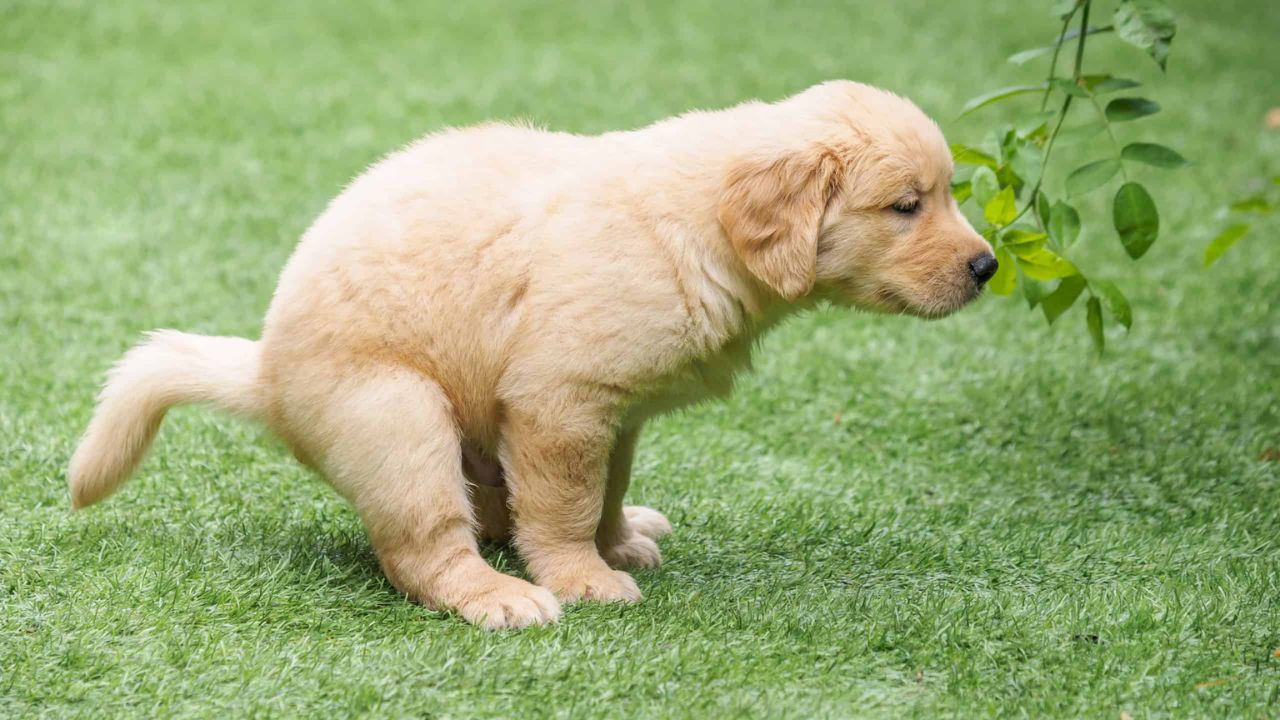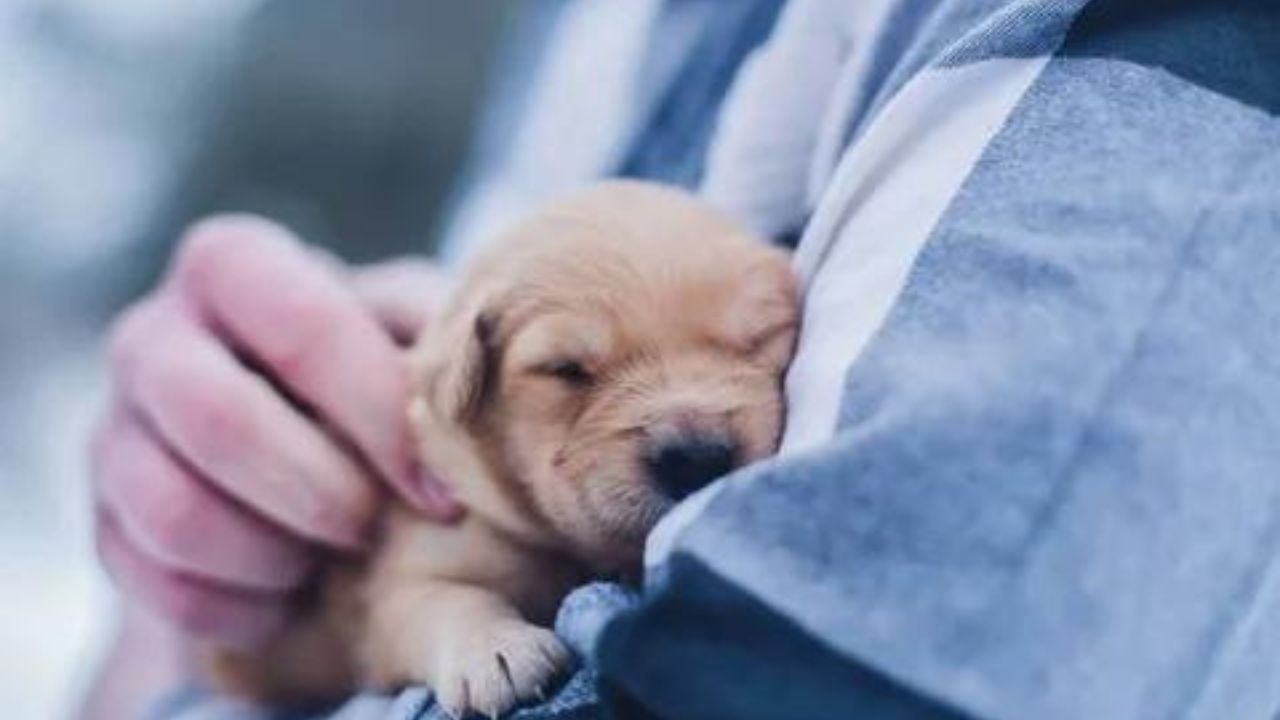
Although bringing a new puppy home is great, many responsibilities are involved. One important aspect of puppy care is understanding their toilet habits.
Knowing how often your puppy needs to pee and poop can help you establish a routine and prevent accidents in your home. The frequency of puppy peeing and pooping factors that affect it and provide tips for housebreaking your new furry friend.
Puppies have a unique digestion and elimination system that differs from adult dogs. Therefore, it is essential to understand their specific needs to keep them healthy and happy by learning when puppies poop and pee. Let’s dive in and learn more about puppy toilet habits.
Frequency of Puppy Peeing
A puppy’s urination frequency depends on various factors, including age, size, breed, water intake, and activity level. Generally, puppies need to pee more frequently than adult dogs because their bladder is smaller and less developed.
Let’s explore how often do puppies pee . Generally, puppies can hold their bladders for an hour each month of age. For example, a two-month-old puppy can hold its bladder for approximately two hours. However, this is just a guideline, and the frequency can vary depending on the puppy’s needs.
Additionally, puppies who consume more water or are active must pee more frequently. On the other hand, puppies sleeping or resting may only need to pee sometimes.
It’s crucial to monitor your puppy’s water intake and ensure they are adequately hydrated. Signs of dehydration in puppies include lethargy, dry gums, and sunken eyes. Overhydration can also be a concern, so don’t overdo it on water intake.
Frequency of Puppy Pooping
Like urination, a puppy’s bowel movement frequency depends on age, diet, size, breed, and activity level. Puppies poop more frequently than adult dogs because they are still developing their digestive system.
A puppy’s diet also plays a significant role in its bowel movements. With a high-quality, balanced diet, puppies tend to have regular and healthy bowel movements. On the other hand, feeding your puppy an inappropriate or low-quality diet can result in constipation, diarrhea, or irregular bowel movements.
Generally, a puppy should poop at least once a day. However, some puppies may poop up to five times daily, depending on their needs. Monitoring your puppy’s bowel movements and looking for signs of constipation or diarrhea is essential.
Infrequent or difficult bowel movements characterize constipation, while loose or watery stools indicate diarrhea. If you detect any of these symptoms, get help from your veterinarian.
Housebreaking Tips
Housebreaking your puppy can take time and patience but can be done with consistency and positive reinforcement. Here are some tips to help you establish a routine and prevent accidents in your home:
Establish a routine: Take your puppy outside to pee and poop each day simultaneously, such as after meals, playtime, or naps. This will help your puppy develop a regular elimination routine.
Positive reinforcement: Praise and reward your puppy for peeing or pooping outside. This will reinforce good behavior and encourage your puppy to continue eliminating outside.
Consistency: Be consistent with your commands and routines. Use the same words or phrases to indicate that it’s time to go outside, such as “let’s go potty” or “outside.” Consistency will help your puppy understand what you expect of them.
Patience: Housebreaking takes time and patience. Accidents will happen, but it’s essential to remain patient and consistent. Punishing your puppy for accidents can confuse them.
How Often Do Puppies Poo And Pee: Potty Training?
Puppies poop and pee more frequently than adult dogs due to their developing digestive system. The frequency of a puppy’s bowel movements depends on various factors such as age, diet, size, breed, and activity level.
If you want to know how often do puppies poo then I would say as a general guideline, a puppy should poop at least once daily. However, some puppies may poop up to five times daily, depending on their needs. Additionally, puppies need to poop shortly after eating or drinking, playing or exercising, and waking up from a nap.
Establishing a routine for your puppy’s potty Training can help them develop a regular elimination schedule. Take your puppy outside to the same spot each time to encourage them to associate that area with elimination. Offer praise and treats for successful elimination outside to reinforce good behavior.
It’s important to be patient during potty Training and expect accidents. If your puppy has an accident indoors, do not punish them; instead, take them outside immediately to the designated elimination spot. With consistency, patience, and positive reinforcement, your puppy can learn to develop healthy elimination habits and become fully potty trained.
Conclusion
In conclusion, a dog’s pee and poop frequency depends on several factors, such as age, size, breed, diet, and health condition. Generally, adult dogs can hold their urine for 8-10 hours, while puppies may need to pee every 1-2 hours. As for bowel movements, most dogs will poop at least once a day, while some may need to go more frequently.
Potty Training is an essential aspect of a puppy’s early development, and it’s crucial to establish a routine and to provide regular outdoor elimination opportunities is crucial. Consistency, patience, and positive reinforcement are key to successful potty training.
Puppies poop and pee frequency, consistency, and color changes can indicate underlying health issues. Regular poop checks and consultation with a veterinarian can help detect potential health issues early and ensure your dog’s overall health and well-being.
Understanding your dog’s elimination habits and providing appropriate care and attention can help keep them happy, healthy, and well-adjusted.
FAQ
How Often Should I Take My Puppy Out To Pee And Poop?
Every two hours
Stay away from this between bathroom breaks, or your puppy will likely have an accident. Take your puppy outside frequently—at least every two hours—immediately after they wake up, during and after playing, and after eating or drinking.
Do Puppies Poop And Pee After Every Meal?
AFTER MEALS
Most puppies eat 3 to 4 meals a day while growing, needing to pee and poop after each meal. Wait 20 minutes post-meal to take younger dogs outside. The younger the puppy, the sooner you should take them out after a meal.
How Long Can A Puppy Hold Its Pee And Poop?
Take your puppy’s age in months and add one. The maximum number of hours a puppy should be able to hold it between potty breaks is determined by age. For example, a 3-month-old puppy plus one equals 4 hours. They should be able to stay in the crate without making a mess.
What Is A Good Potty Schedule For A Puppy?
Schedule Potty Breaks
Keep to a routine of taking your puppy outside at least every two to four hours after every activity change. This is crucial, particularly during house training, to minimize accidents. Several short play sessions during the day are better for a puppy than one long one.
How Do You Potty Train A Puppy Fast?
Take your puppy outside first thing in the morning, after naps, playtime, and bedtime. Designate a specific area in your yard for your puppy’s bathroom needs. Consistently take them to this spot each time they need to go potty. This will help them learn that this is the designated spot for the bathroom.







